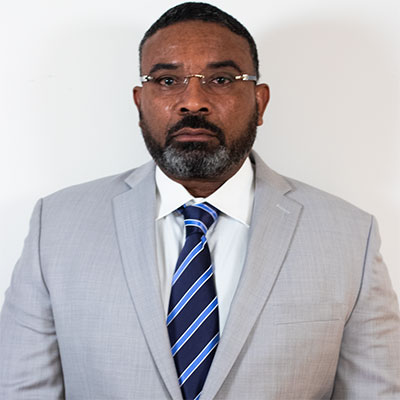By Foster
We’ve entered, what you might call, “The Age of the Greater Good.” Our perception of reality has perhaps been forever altered in a span of 16 months. More so, our lives have become a complex series of often paradoxical questions.
More recently, these questions took the form of implied obligations; all in the name of “social responsibility” or “civic duty.” This has often been the message of governments, the press, and institutions, in times of war and crisis. Thus, trying to enforce the rules of what is commonly referred to as the “social contract,” has become the primary role of these social engineers.
The social contract theory, the roots of which date back to Socrates, suggests that humans voluntarily consent to give up some of their natural freedoms to reap the benefits of participating in a functioning society.
These sacrifices are necessary to provide citizens with the safety and benefits of law and political order. However, the social contract involves an ever-growing list of parties, as our society becomes more interconnected and dominated by forces rivaling even the power of world governments.
While there is heated debate regarding the responsibility of the individual within this social contract, our governments, media, financial, medical, and scientific establishments seem to be negotiating their own roles in real-time.
These moral conflicts have been debated since the 17th century Enlightenment. Now, they’ve found a renewed and alarming relevance with the emergence of questions surrounding the experimental mRNA injections, prompted by the COVID-19 pandemic. The majority of public opinion has been split across two views:
The first view is that the mRNA injection is promoted as a “safe & effective” therapeutic treatment for COVID-19 for a reason. Therefore, accepting this mRNA injection is a civic duty to the public good. It’s each citizen’s personal responsibility to do so, without question.
The second view is that there are legitimate concerns regarding the safety and efficacy of the mRNA treatment and the severity of the COVID-19 virus in the majority of the immunocompetent population. Failure to question these things constitutes a dangerous precedent for groupthink within our society.
Making matters worse, since March of 2020, has been the contradictory and often arbitrary nature of the alleged “safety restrictions.” Ironically, those are perhaps the only consistent aspect of the public health messaging regarding COVID-19.
From slogans such as “2 weeks to flatten the curve,” to endless wavering on the necessity and efficacy of mask-wearing, to the transmission of the virus outdoors and on surfaces, to the closures of schools and small businesses, the evidence to justify these measures has grown weaker by the day, by the week, by the month. Now, we’re unfortunately clocking the years.
This growing skepticism is highlighted by the outright reversal of all restrictions in states like Texas and Florida. There’re also countries like Sweden, which implemented restrictions but not lockdowns.
Whereas places like California, the United Kingdom, and Australia saw devastating, repeated lockdowns, and long-standing restrictions with little benefit. In light of all this, it’s appropriate for a populace to ask,
“If we have a civic duty to society, do the institutions which inform and dictate the rules of the society, have a civic duty to us?”
This question is made even more essential now that states are demanding children partake in the mass clinical trial of a pharmaceutical product. That product being the experimental mRNA therapy.
Keep in mind, this is without long-term safety data. Also, the integrity of which has already been all but disavowed by the manufacturers, who demanded to be exempt from all liability for any adverse reaction caused by this treatment.
Is it morally consistent to claim a child, who can’t reasonably provide informed consent, has a stronger social responsibility to unquestioningly accept a pharmaceutical intervention, than the manufacturers, public health officials, or institutions who demand it?
Do the parents of young children have a social responsibility to coerce their children to accept it? Do we all have a social responsibility to do what we’re told by people and institutions that don’t have a social responsibility to tell us the truth? If so, does this mean we have a social responsibility not to challenge institutional lies?
Perhaps the most disturbing of all these ruminations is that our ruling elite class eschewed the social responsibilities expected of the rest of us throughout this crisis.
Our political leaders have been spotted dining in restaurants meant to be closed, traveling across state and international borders, and attending maskless gatherings. Meanwhile, the major corporations, who spend millions lobbying and contributing significant sums to election campaigns, not only saw their business operations uninterrupted, but their competition was essentially decimated by targeted mandates. These mandates included dictating that they must shut down or drastically alter their logistics, at great personal cost and inconvenience.
Likewise, the children of the ruling class have attended private schools that continued in-person learning. Most working and lower-class children, on the other hand, had their public education disrupted by a disastrous virtual learning system and endless 2-week quarantines. Often, this was due to false-positive PCR tests and loosely defined cases of “close contact exposures.”
We’ve seen first-hand the blatant division of social classes. More so, we’ve had no recourse to negotiate, adjust, or prevent these infringements on our way of life. So, we must ask, to whom exactly does the social contract truly apply, and under what conditions?
If the social contract theory holds true, it may be said that it’s far beyond time for the people of the world to come to the table and ask, or rather demand, a renegotiation of the terms.
Subscribe to get early access to podcasts, events, and more!






